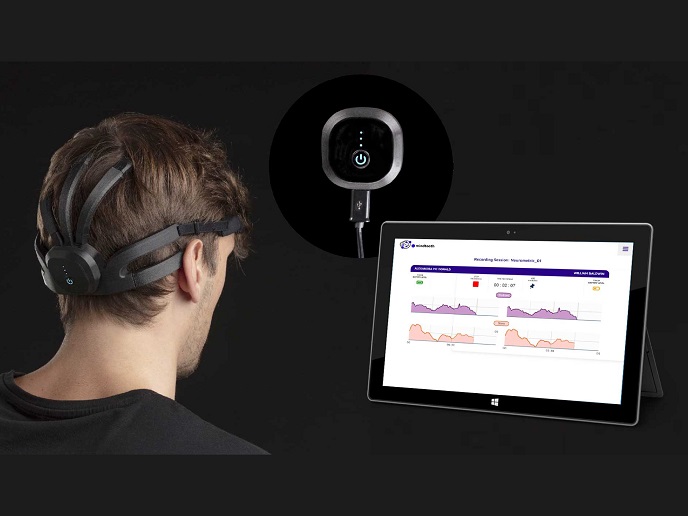Game-changer – comfortable headset gives electroencephalogram for mental state evaluation
Being able to record the mental state of operators such as drivers or pilots is central for predicting their stress conditions and needs, for improving training processes or preventing security alert situations. This has been possible by processing brain information through specific techniques such as electroencephalography (EEG). However, technical limitations with respect to signal quality and uncomfortable headsets have impeded the use of EEG. Moreover, the signal processing is time-consuming and requires specialised personnel to perform the measurements.
An easy-to-use EEG-based system
The EU-funded Mindtooth project aimed to address these shortcomings by developing an easy and immediate approach for measuring the mental state of operators or individuals during leisure activities. “We have developed a comfortable and easy-to-fit EEG headset that will help process brain signals in real time as indicators of cognitive or emotional stress, workload and attention,” explains Fabio Babiloni, chief scientific officer and cofounder of BrainSigns. The Mindtooth system encompasses a lightweight EEG headset with five sensors in the front and three in the parietal regions of the brain. Maximum comfort is achieved through accurate design and 3D-printed flexible materials. The rear part of the headset contains ground and reference sensors. The headset can be recharged and connects wirelessly via Bluetooth. The system also contains a software suite that records cerebral activity from the headset. The software can compute neurometric parameters such as workload, vigilance, stress and cooperation, which are very useful in operative environments such as training in aviation and automotive simulators. The neurometrics calculation comes from many years of research and is performed in real time using AI algorithms. Neurometrics data can be visualised, offering the user the ability to observe the recorded information.
A comfortable and effective EEG headset
The consortium validated the Mindtooth system, confirming high usability level and good quality of contact of the EEG water-based electrodes leaving no signs on the skin. The system was tested on more than 200 individuals with different hairstyles, head shapes, nationality and age, maintaining the quality of the signals as well as a very high comfort over time and good fitting. Additionally, the system was validated in real settings, at the Urbe Aero training centre in professional pilots’ training, at the University of Burgos in an automotive simulator application and at Brain Products’ facilities for an industrial application on employees. The system demonstrated its effectiveness as a whole at estimating neurometrics of workload, stress, vigilance and also of cooperation.
A game-changer in neurometrics?
“The Mindtooth system has the potential to greatly assist training or measure the degree of fatigue during challenging activities, such as driving an aeroplane or a car,” emphasises Babiloni. This is of great importance in the automotive field, where the probability of risk occurrence needs to be continuously monitored and predicted to ensure road safety. Also, the Mindtooth system can find application in aviation where the safety of people relies on the work, efficiency and mental state of the pilots. Finally, the Mindtooth system can extend its application to neuromarketing, gaming, medical rehabilitation as well as for the monitoring of patients in telemedicine.
Keywords
Mindtooth, EEG, headset, training, mental state, stress, neurometrics, automotive, electroencephalography, aviation, human factors



